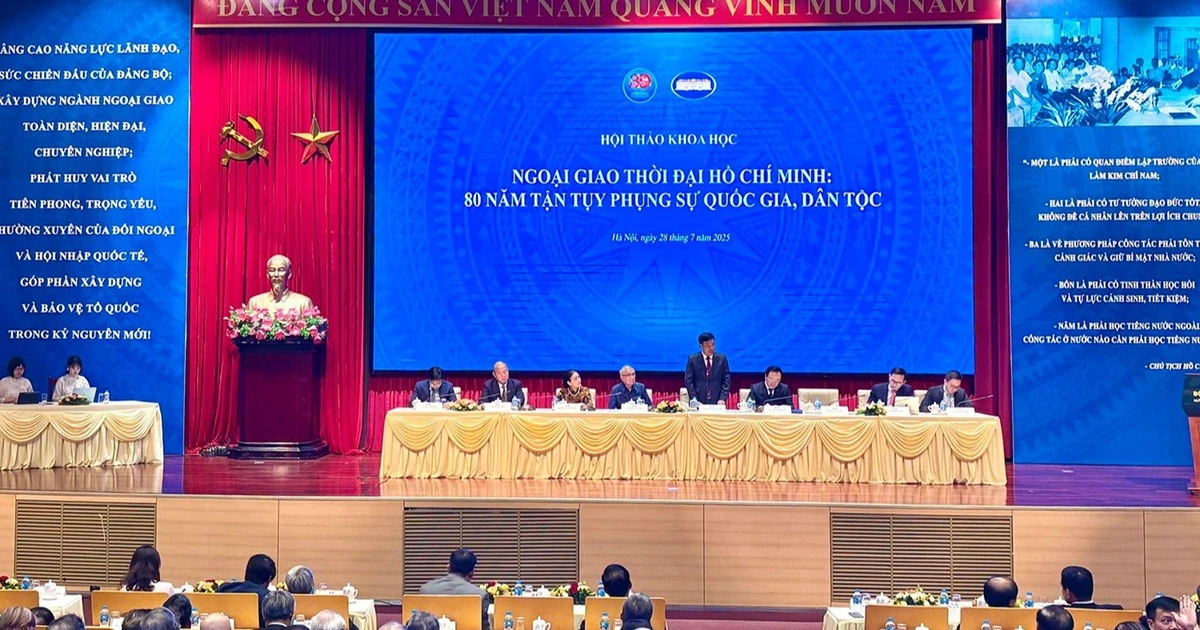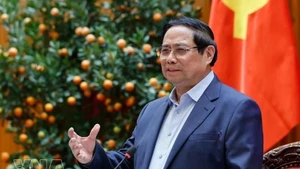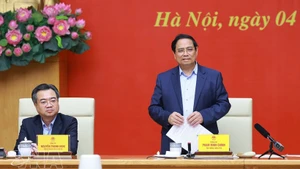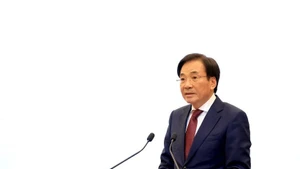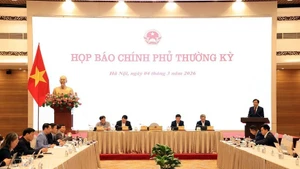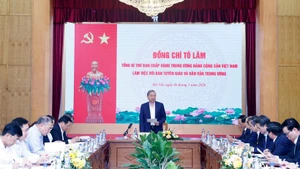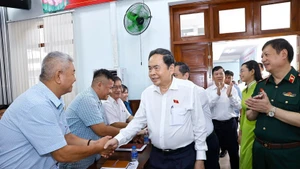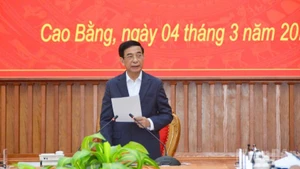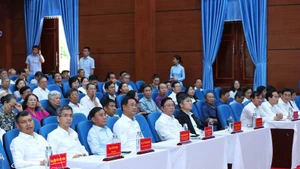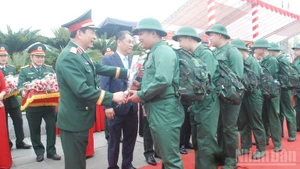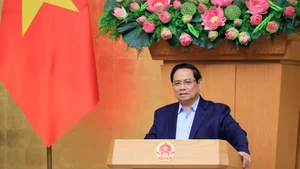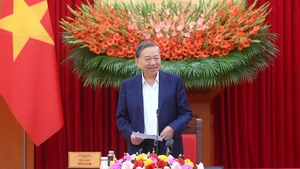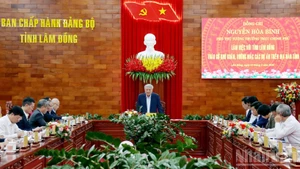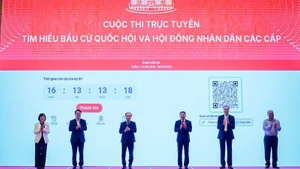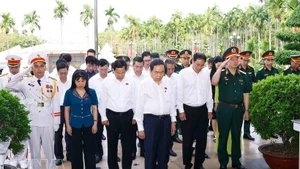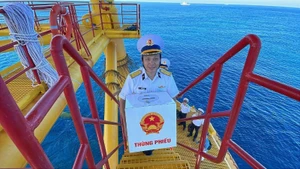Delivering the opening remarks, Deputy Prime Minister cum Minister of Foreign Affairs Bui Thanh Son emphasised that the diplomatic sector was honoured to have been directly guided, trained, and mentored by President Ho Chi Minh, who also served as Viet Nam’s first foreign minister. Throughout its 80-year journey, Vietnamese diplomacy has faithfully served the nation and people, making worthy contributions to the country's historic achievements.
From the earliest days of the nation’s founding, President Ho Chi Minh wielded diplomacy as a sharp weapon to gain friends and reduce foes, to divide and weaken the opposition, to safeguard the fledgling revolutionary government, and to gain time and strength for the long-term resistance war. During the struggle for national liberation and reunification, diplomacy, alongside political and military fronts, formed a key strategic front. It helped translate military victories on the battlefield into triumphs at the negotiating table, thereby bringing an end to the wars.
The Preliminary Agreement of March 6, the September 14 Modus Vivendi, the Geneva Accords of 1954, and the Paris Agreement of 1973 stand as shining milestones in the history of revolutionary diplomacy, paving the way for the historic Spring Victory of 1975 that reunited the country.
Following national reunification, diplomacy played a vital role in building peace, breaking the blockade and embargo, and expanding foreign relations under the foreign policy of independence, self-reliance, diversification, and multilateralism for peace, cooperation, and development. Diplomacy led the country forward in regional and global integration, marked by historical milestones such as Viet Nam’s accession to ASEAN, APEC, and the WTO, and facilitated the signing and participation in hundreds of international treaties and agreements.
“Diplomacy has played an essential role in elevating the country’s position, transforming Viet Nam from a nation once absent from the world’s political map into one with an increasingly prominent role in global politics, the international economy, and the progress of human civilisation,” stressed Minister Bui Thanh Son.
Today, Viet Nam maintains diplomatic relations with 194 countries and has established a network of comprehensive strategic partnerships, strategic partnerships, and comprehensive partnerships with 37 nations, including all major powers and the five permanent members of the United Nations Security Council. Viet Nam is also an active member of more than 70 international and regional organisations. The Communist Party of Viet Nam has established relations with 259 political parties across 119 countries.
At the discussion session, former Foreign Minister Nguyen Dy Nien once again emphasised the great honour for Viet Nam’s diplomatic service as had President Ho Chi Minh was its first “commander-in-chief”. President Ho Chi Minh recognised diplomacy as the only effective tool to overcome the country’s challenges following the August Revolution.
Nien also expressed pride in the remarkable progress of Viet Nam’s diplomacy since the Doi Moi (Renewal) period. He stressed that Viet Nam must uphold this position through a foreign policy rooted in independence and self-reliance, demonstrating Viet Nam as a symbol of peace, reconciliation, harmony, solidarity, and cooperation.
For her part, Ton Nu Thi Ninh, former Vice Chairwoman of the National Assembly’s Committee for Foreign Affairs,remarked that Viet Nam’s rise from a very low starting point in the 1980s has given both the country and its diplomacy a new standing. This progress allows Viet Nam to further advance and diversify its proactive, flexible, and comprehensive diplomacy amid an increasingly complex and unpredictable global and regional geo-economic and geopolitical landscape.
According to her, this context poses intricate challenges that require Vietnamese diplomacy to demonstrate both intellectual depth and strategic courage, playing an advisory role in national strategy and policy, as well as effectively implementing diplomatic tactics and measures.
The conference was structured into two main sessions, focusing on key themes, including: reviewing 80 years of diplomatic practice to contribute to the theoretical development of modern Vietnamese diplomacy; defining the scope and substance of diplomacy in the new era; proposing ways to enhance the effectiveness of foreign affairs and diplomacy under new circumstances; and presenting initiatives and solutions for the development of the diplomatic service.
